Science: sound travelling through a medium
This afternoon, we’ve been investigating the way that sound travels. We talked about how sound travels through different mediums.
Sound travels through the air into our ears.
Next, we observed how sound travels through water. We put a tuning fork and into a bowl of water and observed the sound waves rippling across the water from the tuning fork

After that, we investigated of sound travels trough a solid. We made string telephones and found that we could hear each other talking as sound travelled along the string. It even worked with really long string telephones!

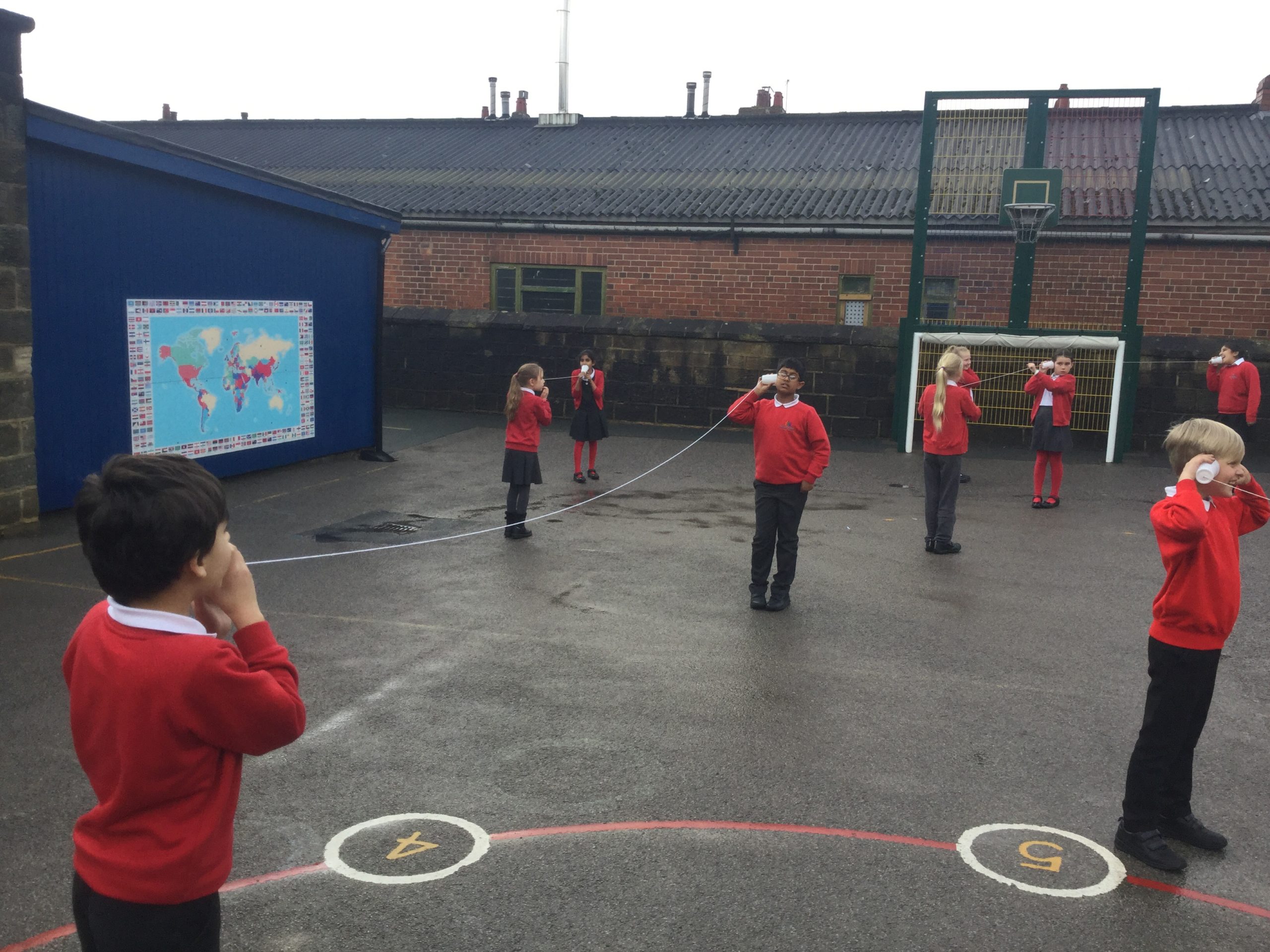
Living and Learning: relationships
In our Living and Learning lesson this week, we were talking about our relationships with family and friends and what makes them special.
We also discussed how it can be difficult when something in our lives changes meaning that we can’t see loved ones as regularly. This resonated with the class as, due to lock down and tiers, we’re all being affected by this.
We talked about and made a list of different things we can do to show family and friends that we care about them and are thinking about them even though we may not be able to see them. We hope you find them useful!
How to show loved ones we’re still thinking of them:
- Send a letter
- Video call: find and tell some jokes, play a game (like battleships, noughts and crosses, etc), read a book, test them on Ancient Greece, do some drawing, make some something together (bake, crafts, etc), show your school homework and talk about it, eat together, share your screen and look at some old photos, get them to test you on times tables or spellings, get active together, play a game (killer 12, etc)
- Send a funny video
- Text or email
- Send a gift – something you’ve baked or made
- Draw a picture and send it
- Write a poem or story
- Make a quiz or do a Kahoot
School menu change and Christmas meal
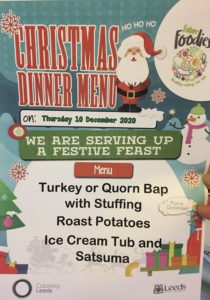
History: interpretations of the past
In our history learning today, we used our knowledge about the Athenian and Spartan city states to decide which one was the best!
We split into two teams to debate and within our teams split into little sub-groups responsible for debating one aspect of life in the city states.

The class did a great job at debating. They took turns well, made pertinent points, responded to opposing points and summarised. They also used openers to introduce their points and were respectful debaters throughout!

So, who was the best city state? Well, the debate was close. Athens won the categories on government and economy but Sparta won education and role of women. Tomorrow, we’ll make final points and I’ll make a decision on the winner!
Living and Learning: strong emotions
In our Living and Learning lesson today, we were talking about strong emotions and some strategies to cope with them. We decided that talking about how we were feeling was a really good way of solving a problem or feeling better about something that may be troubling us.
We then watched a BBC education video about someone who joins a new school and is desperate to make friends and fit in and ultimately makes a bad choice in order to fit in with a group of people. We discussed the emotions that the person could have been feeling and how that influenced his choices. We also discussed what they could have done differently and how they eventually solved the problems.
Virtual after-school sport club
Aimed mainly at primary-aged children, a different theme has been assigned for each day of the club – Adventure Monday, Tuesday Play, Wild Wednesday, Thinking Thursday and Fun Friday.
Click here to find out more.
Times Table Rock Stars!
Watch this video showing the class progress in Times Table Rock Stars from Y3 to Y4. You can view your own child’s progress when they login. There’s some amazing improvements!
History: Athenian democracy
In today’s lesson, we’ve been learning about Athenian democracy.
We learnt that most Greek city states were ruled by one person (monarchy – a king, queen or emperor) or a small group of powerful men (an oligarchy). An Athenian Tyler, Solon, introduces democracy to Athens around 500BC which gave any citizen the opportunity to vote on new laws.
However, only men who were born in Athens were classed as citizens. Women could not vote!
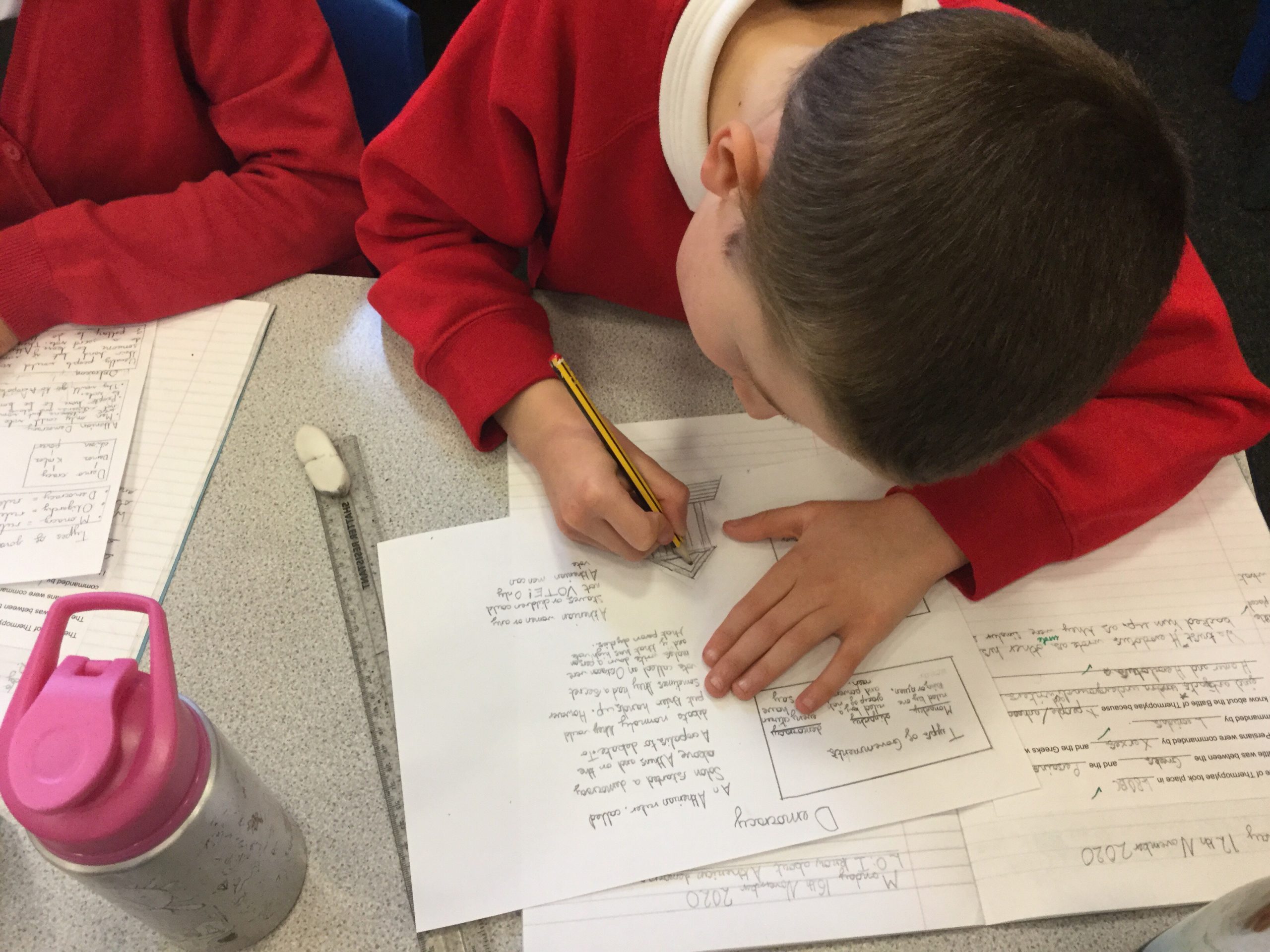
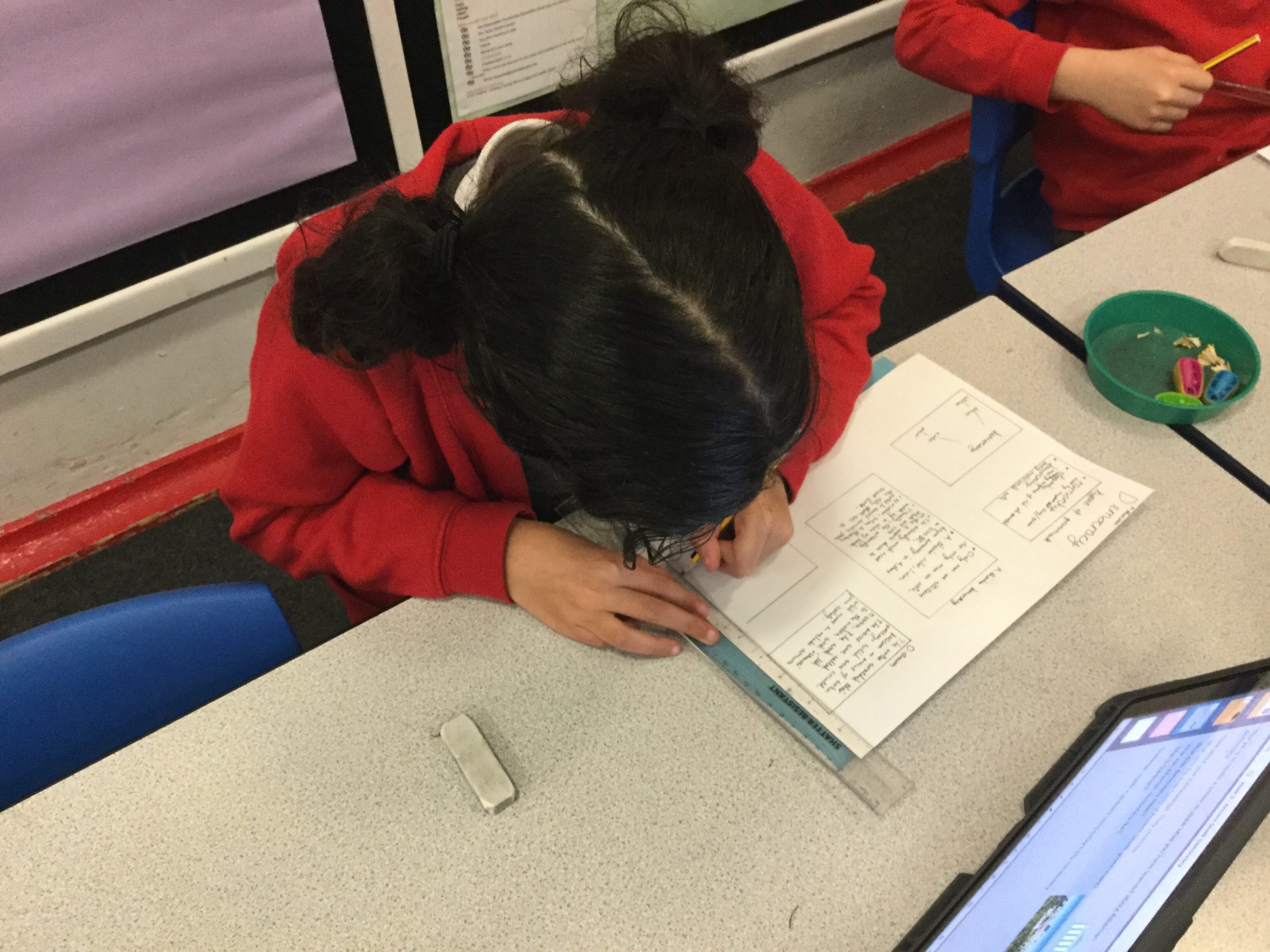
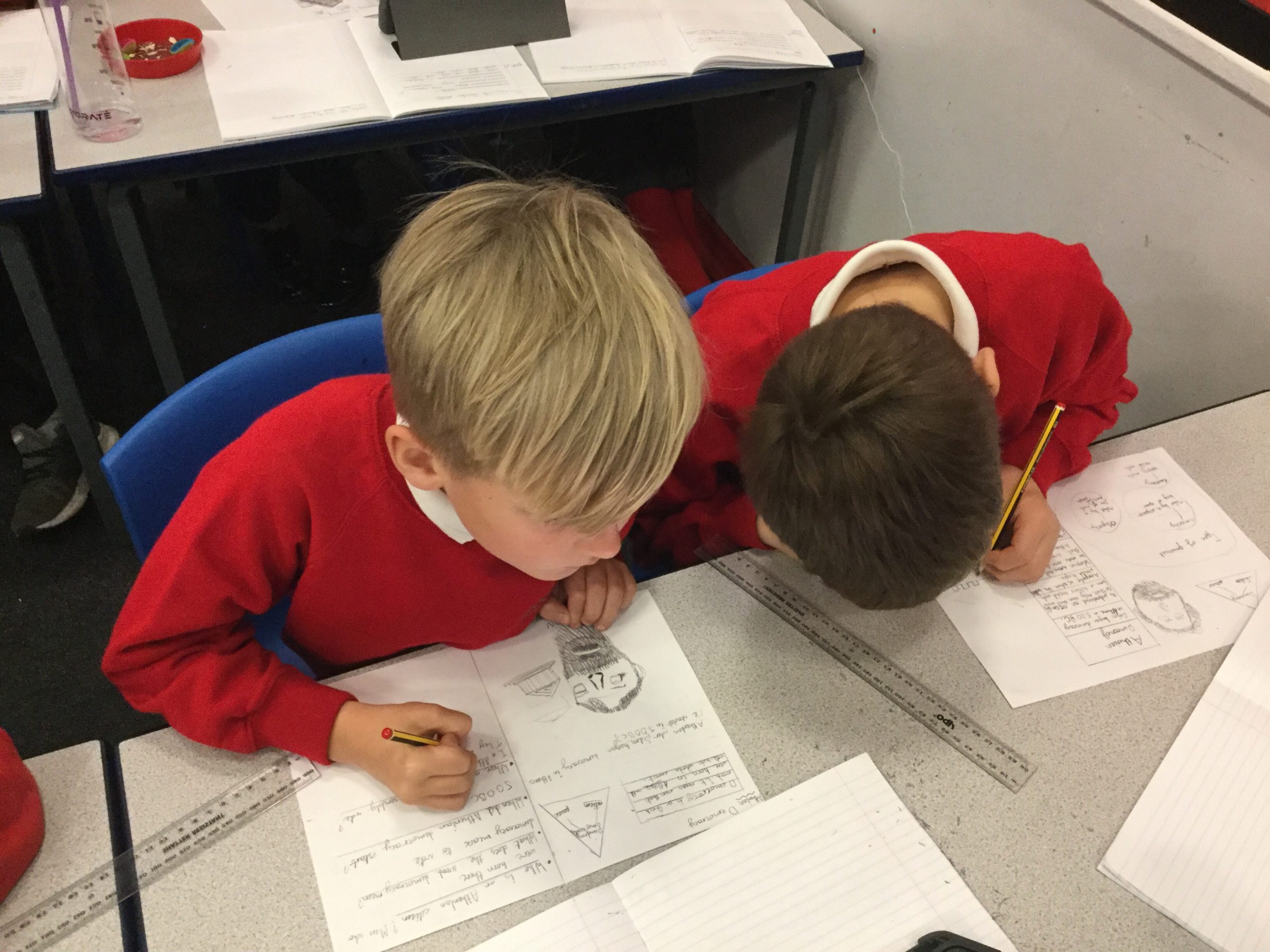
Living and Learning: United against bullying
This week, it’s Anti-Bullying Week and the theme for this year is ‘United against bullying’.
Don’t forget – we are also taking part in Odd Socks Day on Monday 16 November.
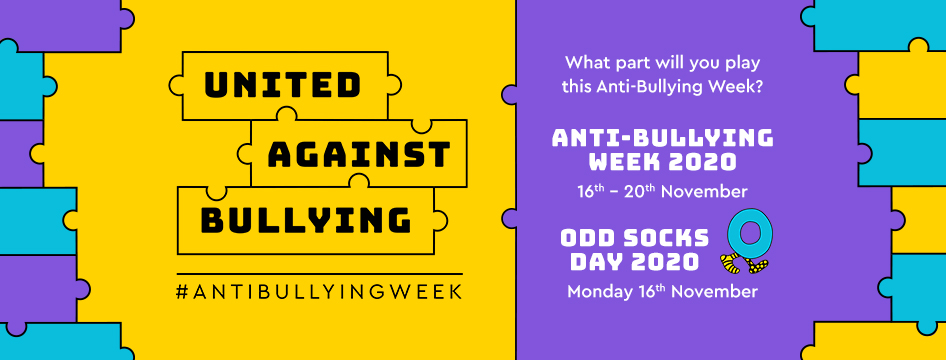
STOP is a key message linked to bullying. In our school, STOP stands for two things:
- the definition: Several Times On Purpose
- the solution: Start Telling Other People
Recently, our school council met to review our school definition of bullying and our child friendly anti-bullying policy. Thank you to the school councillors for their valued contributions. As a result, our definition and policy have now been updated.
Child friendly anti-bullying policy
What is bullying?
In our school, this is what bullying means:
Bullying is where you hurt someone, physically or emotionally (including online), several times on purpose.
What might bullying look like?
If any of these things happen several (lots of) times, it is bullying.
- Hurting peoples’ feelings, for example, name calling, teasing, threatening, ignoring, leaving people out or spreading rumours
- Hurting peoples’ bodies, for example, hitting, punching or kicking
This could be in person or online (cyber bullying) and could be because of someone’s race, disability, gender, appearance, age or any other protected characteristic.
What could you do if you are being bullied?
Start
Telling
Other
People
Who could you tell?
- Mrs Weekes/Mrs Freeman/Mrs Russell/Mrs Small (they are child protection staff)
- Mrs Taylor (Health Leader)
- Any other members of staff
- Friends
- Someone in your family
- A trusted adult
- Childline (0800 1111)
- Write a worry slip and put it in your Living and Learning box or the whole school worry box
- Email stayingsafe@spherefederation.org
Our views on bullying
STOP bullying – bullying is wrong! We’re a happy and healthy school.
Writing: similes
We’ve been learning about similes this morning in our writing lesson.


We used an app called Padlet to collate our similes. We then read them as a class and edited them if they needed correcting or improving.
“The red panda moved as quick as lightning to save its adorable cub.”
“The newly washed clothes were as soft as silk.”